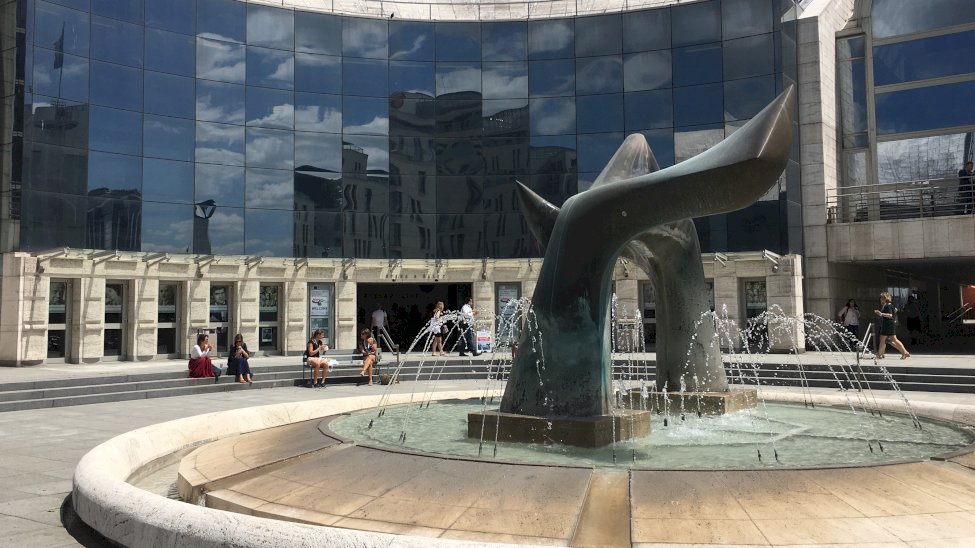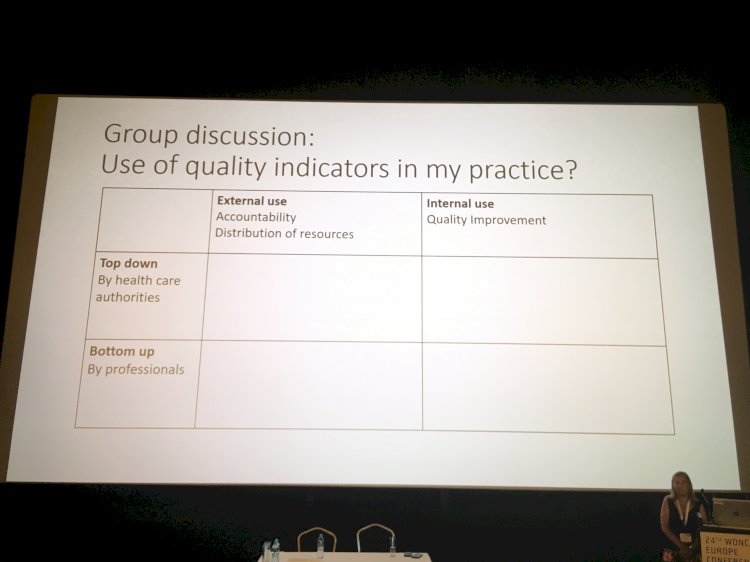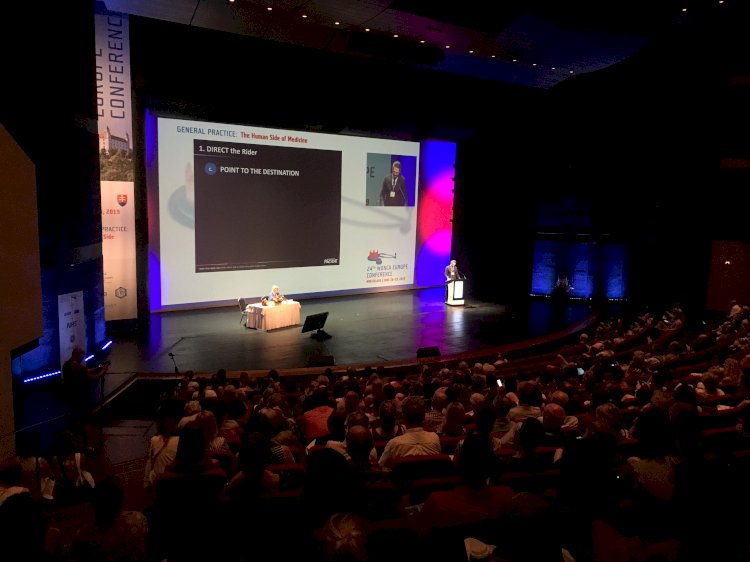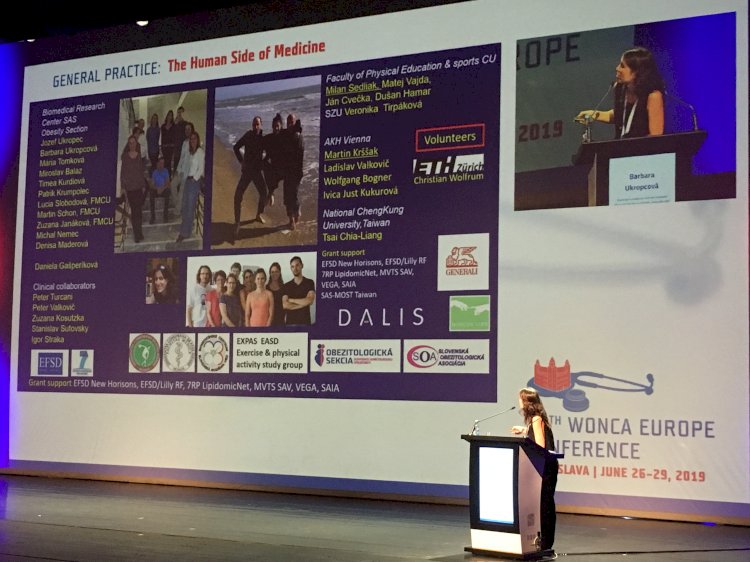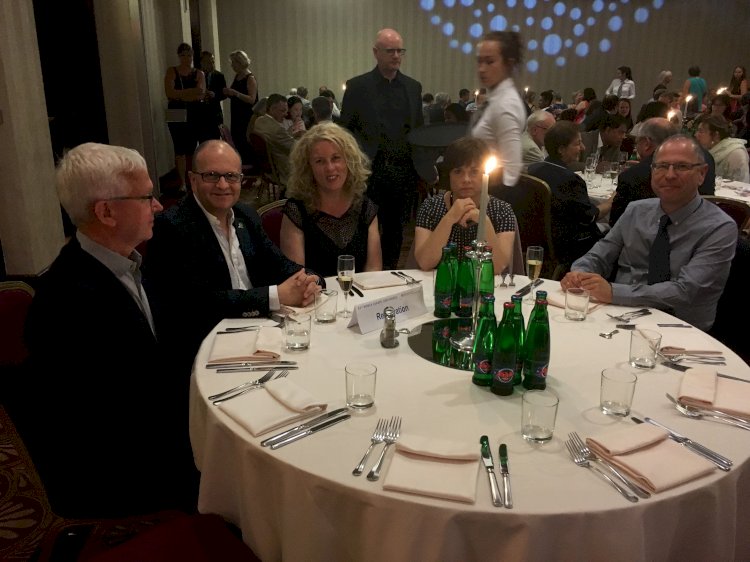Another busy and fruitful day at the 2019 WONCA Europe Conference – here are some of today's highlights.
Workshop: Medical and social support for patients with mental and neurodegenerative disorders in rural areas
This session was run by EURIPA, a network organisation founded by rural family doctors to address the health and wellbeing needs of rural communities and the needs of healthcare professionals serving them across Europe, irrespective of location, culture and resource. The network of rural practitioners and organisations across Europe is constantly growing and it is focused on disseminating good practice, initiating research, developing education in rural areas, and influencing policy.
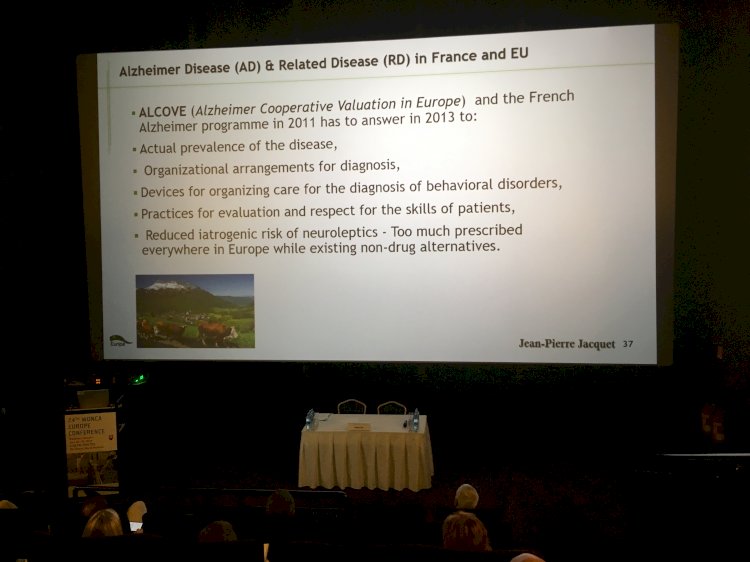
The workshop aimed to identify and share knowledge about potentially valuable and transferable solutions, implemented in various countries across rural areas in Europe, for the care of mentally ill patients. The organisers shared practical information about various approaches to the provision of care for dependent persons with mental illness by rural family doctors across Europe. The workshop considered the innovative approaches taken, lessons learned and issues for sustainability when developing new services.
WORKSHOP: Quality indicators: From Worthless to Useful
This workshop generated discussions around how quality indicators are used, and how they should be used. It included a short introduction on what Quality Indicators are and on the EQuiP position paper “Measuring Quality in Primary Health Care”. It then discussed examples of the use of indicators (good and bad) from several countries and steps in the process to make better use of quality indicators.
Eva Arvidsson, R&D unit for Primary Care, Futurum, EQuiP, Sweden
The patient is primarly human being
Radoslav Herda, Slovak Patient and Slovak Alliance of Rare Diseases, Slovakia
There is a lack of doctors in every country, and Slovakia belongs among them. There is a growing need for understanding the patient's life and his current situation. General practitioners, the experts, are specialists in understanding a patient's life. Well-functioning communication and cooperation in the spirit of non-blaming culture is crucial.
We want you to perceive us through our needs, our vulnerability and fragility. Patients are primarily human being.
Workshop: VdGM Junior Researcher Award 2019
The Vasco da Gama Movement (VdGM) aims at encouraging junior GPs to lead research projects by proposing the "Junior Researcher Award" which rewards projects of young GPs. In this workshop, finalists selected by an international jury presented their research projects and share their ideas for future research and their personal career.
Workshop: How to benefit from doing research? What EGPRN can do for VdGM?
The approval process and recognition of the Family Medicine is not possible without fostering activities in research, education and quality. Research gives the vision for the future development and prosperity of Family Medicine, but resources such as solid knowledge, professional skills and responsible attitude towards research are needed. Research networks are an important element in fostering the research capacity.
EGPRN is widely recognised as an organisation with focus on research supporting young doctors to start their academic development. The Fellowship Program is a new example of a successful and unique activity run by the network. It aims to provide young fellows with the necessary knowledge and skills to carry out their own research projects.The aim of the workshop was to discuss the benefits from doing research, to present the real needs of young doctors and identify the common goals.
Exercise is medicine: Can we increase physical activity in patients' everyday life? The challanges of exercise prescription
Barbara Ukropcová, Biomedical Research Center, Slovak Academy of Sciences, Slovakia
Numerous prospective and intervention studies have shown that regular exercise has an unambiguous potential to prevent, slow-down and even reverse the progression of chronic diseases at preclinical and early clinical stages and to improve patient’s quality of life at the advanced stages of the disease.
Observations carried out by the Biomedical Research Center support the importance of regular exercise in prevention and supportive treatment of chronic metabolic and neurodegenerative diseases. The biggest challenge, however, is to translate the knowledge from the complex lifestyle intervention studies into clinical practice. Supporting collaboration between general practitioners and specialists in exercise physiology, nutrition and lifestyle coaching would create a niche permissive for effective lifestyle modification.
Workshop: Developing a web-based research course for family medicine trainees: a collaborative project from EGPRN, EURACT, EURIPA, EQuiP and Vasco da Gama
The academic development of General Practice and Family Medicine has made notable progress recently. Establishing the academic status of the discipline requires a strong research base, which in some countries and in rural areas is weak both in terms of evidence, with scarce high quality publications, and in limited number of research institutes around the world. The aim of this workshop was to develop a joint web-based research course.
Presentations were given by EGPRN, EURACT, EURIPA, EQuiP and Vasco da Gama – the intended result is to facilitate the development of a web-based research course that fits the needs of family physicians with diverse origins and needs.
Workshop: Young doctor's marketplace / VdGM (the European young family doctors movement) AGM
The workshop began with an "Annual General Meeting" which consists of a brief report of the VdGM Executive Committee on the activities, successes and challenges of the past year followed by an opportunity for the audience to ask questions. It then progressed to the "Young Doctors Marketplace". This has become a popular feature of the VdGM contribution to the WONCA Europe Conference Programme over the past few years. Utilising "open space technology" facilitation techniques participants were invited to share, generate and evolve ideas and projects with the aim of building new relationships, strengthening the VdGM community, developing conversation and debate and sparking innovation.
Day 3 was rounded off with a Gala dinner this evening.

